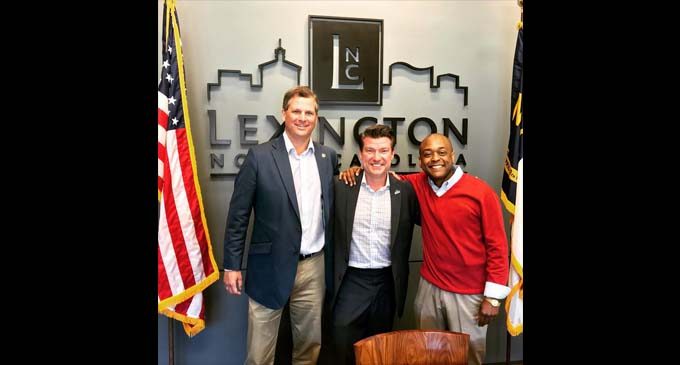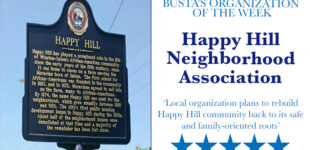Commentary: Revitalization in small town USA is a blueprint for economic development in minority communities

For the past couple of decades, communities across the country have been hyper focused on downtown revitalization. Small towns and large cities awakened to the importance of having a thriving central business district. City leaders sought to fight back after decades of losing business to the expanding suburban malls. Booming downtowns provide much needed tax revenue, jobs, quality of life, and enhances the overall social fabric of the community at-large.
In Winston-Salem alone, nearly $2 billion have been invested in downtown revitalization efforts, which have resulted in 4,000 new residents, more hotels, restaurants, and even a remodeled convention center and public library. Neighboring Greensboro plans to invest another $500 million in their downtown, with High Point working tirelessly to construct a minor league baseball stadium to spur development in downtown.
However, the growth in downtowns have not been isolated to mid- and large-tier cities – small towns have been focused on breathing new life in their downtowns, too. I’m honored to personally know many of the people responsible for leading some key rural areas. BJ Murphy, former mayor of Kinston; Esther Manheimer, mayor of Asheville; Ian Baltutis, mayor of Burlington; and Newell Clark, mayor of Lexington [N.C.] – all wonderful friends of mine.
I’ve made countless trips to Kinston and witnessed firsthand their small community undergo massive changes. Local food entrepreneur Vivian Howard has been a driving force; she has a starring role in the award-winning PBS television series “A Chef’s Life,” and head chef and owner of the restaurant Chef & the Farmer, which she chose to locate in her hometown.
Undoubtedly, Stephen Hill is also a well-known name around town. He grew up in Kinston, and his family built a successful company in Kinston. Now he is laser-focused on giving back. Hill is the “money” behind Mother’s Earth Brewing, Mother Earth Motor Lodge, and a luxury boutique hotel The O’Neil. Mr. Hill has also been directly responsible for transforming a blighted residential neighborhood located adjacent to downtown Kinston.
Last week, I spent a half day on a walking tour with my good friend and Lexington Mayor Newell Clark. I was most excited about visiting some local BBQ spots when we originally scheduled the meeting – but he had some pleasant surprises in store. Mayor Clark spent most of the afternoon showcasing a wide range of historic buildings under construction and preparing for local businesses to move in.
Small businesses such as Red’s Donut Shop have already outgrown existing space and wanting to grow their sprawling enterprise with bigger digs. The rapidly expanding Brewer’s Kettle with locations in Wilmington, High Point, Clemmons, and Kernersville – recently opened in downtown Lexington. We visited Mayor Clark’s good friend that just opened a butcher shop, and then hopped across the street for lunch at a new wine bar Sophie’s Cork & Ale, where I had an amazing marinated chicken breast served in a panini. The mayor even toured me around their growing entertainment district complete with an outdoor amphitheater, but he was most proud to show off the new sign being installed at the community theater, not to mention a local sign company was handling the work – which leverages the mayor’s philosophy of “local first.”
The most impressive part of what’s happening in Lexington and even in other small communities such as Asheville, Burlington and Kinston is local entrepreneurs, real estate developers and municipalities are the primary drivers, which I believe provide a blueprint for the various minority communities across the country that remain devoid of the necessary capital investment to transform neighborhoods badly in need.
The reoccurring theme in all these scenarios is that local people recognize a critical need, local people risk capital, and local people invest the energy to attract what’s needed most by the local community. The very people residing in blighted minority communities are best positioned to understand the needs of that community.
What are they asking for? A restaurant, banking, entertainment options, access to health care, or possibly a grocery store. Once you understand the need, develop a plan to source the required human and financial capital, and then move your idea into reality.
Our communities most in need will not advance until the people in those very communities decide to lead the advance.
Algenon Cash is a nationally recognized speaker and the managing director of Wharton Gladden & Company, an investment banking firm. Reach him at acash@algenoncash.com
















